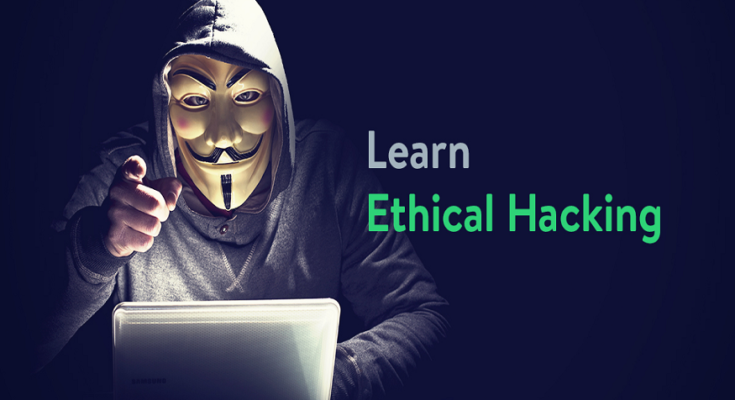Ethical Hackers: Who Are They?
An ethical hacker, often known as a “white-hat” hacker, is a professional in data security who assists in finding weaknesses and security faults in the target network by illegally and ethically violating it. They recognize and disclose these dangers so that businesses or governmental bodies may take preventative measures to shield networks and data from harm.
Hackers may be of three different types:
Black Hat Hackers
These are moral hackers who find operational weaknesses, hardware, and software vulnerabilities, as well as security problems. Before engaging in the practice lawfully, they must get permission first from the organization’s authorized staff.
White Hat Hackers
These are hackers who obtain access to a computer without authorization and breach or steal data from an organization to defraud, steal, or create trouble. Do you recall the $4 billion (USD) damage caused by the Ransomware attacks? By encrypting user information and requesting a bitcoin ransom, it attacked thousands of Windows systems in 2017.
White Black Hat Hackers
Both white hat & black hat actions are carried out by these hackers. They enter buildings without permission and frequently with bad intentions. Grey hat, however, may also accept contracts to assist corporations in enhancing their security. They essentially do their jobs on both ends of the roadway.
How Does Ethical Hacking Work?
In the process of examining a system’s networks for weaknesses against other malicious threats, robberies, or assaults that might result in monetary loss or even other damages to a system, ethical hacking is done. Following a security breach that impacted 500,000 customers in 2018, Airways was forced to pay £183.39 mm ($230 million) to end state investigations. Damages go beyond monetary loss since they jeopardize an organization’s image and brand.
To enter systems methodically, ethical hacking adopts techniques that are also used by illicit hackers. The fundamental distinction is that an ethical hacker is permitted by all necessary parties to attempt system compromises to strengthendefenses against actual assaults. According to Juniper research, firms would lose more than $2 trillion to cybercrime in 2019. Additionally, terrorist groups support hackers who use malware or spyware to undermine a country’s security or demand large amounts of money in exchange for information.
Top Motivators to learn Hacking
Recently, particularly after the GDPR standards were updated, the ethical hacking sector has attracted a lot of media attention. Here are the top reasons to study ethical hacking that can persuade you to create a career round if you’re still debating whether it’s for you:
Work Never Gets Old
Do you dread working in a job that is boring and getting worse by the minute? Then you could like a career in hacking. You will undoubtedly engage in a lot of brainstorming as a result of the transformation of existing dangers into new ones and the development of a variety of different assaults by black hat hackers. It’s also not your typical brainstorming since one of your responsibilities as hackers is to correct mistakes made by crackers, which calls for an unconventional strategy.
Companies in all sectors require ethical hackers.
Anything with an internet-facing website or that deals with a bunch of consumer data is vulnerable to hackers, whether it’s a logistics firm, a social networking company, or even something as basic as textiles. As a result, an ethical hacker discovers that he is sought after by a variety of businesses, not just the IT industry. Learning ethical hacking is a great way to avoid being constrained by a certain area.
A large salary
Everyone can agree, that “money makes the universe go round.” In light of recent privacy violations, the world has come to understand the fundamental significance of cybersecurity & ethical hacking. To defend their networks from cybercriminals, individuals and organizations are seeking ethical hacking specialists. These businesses are often willing to pay significant salaries to security professionals who can effectively safeguard their privacy as well as the privacy of their business from black hat hackers.
A greater feeling of accomplishment
The ethical hacker’s primary responsibility is to safeguard information. A higher feeling of accomplishment always results from acting to protect. Every day, malevolent hackers prey upon thousands of individuals, and it is the ethical hacker’s responsibility to protect an organization from these crimes. Learn hacking with the Hacking accreditation program and enter the field if you want the fulfillment of a fulfilling career and the desire to impact people’s lives.
Many Possibilities Chances
As was previously said, an ethical hacker may find employment across a wide range of businesses, but the great news doesn’t end there. There are approximately 300,000 job openings for certified cybersecurity professionals, based on a recent survey by the Department of Labor. However, owing to a dearth of qualified professionals, these roles are often vacant. Therefore, it should go without saying that if you are wanting to be an ethical hacker, you should just not worry about losing out on possibilities.
Hacking’s Exciting Side
A hacker that works again for the greater good is considered an ethical hacker. In contrast to a hacker who utilizes a vulnerability inside a system for their benefit, they disclose it to the right parties after they successfully exploit it. In summary, an ethical hacker not just defends an organization but also enjoys the rush of breaking into a network, which would be certainly thrilling.
You may significantly contribute to protecting the systems and information from risks and assaults by becoming an ethical hacker. As just the hacker, you have the following abilities:
Investigate and analyze the access to the target system to find any security and system weaknesses from the hacker’s perspective and provide a fix Support government agencies in protecting a country’s infrastructure from radicals by assisting in the implementation of a cutting-edge network that can survive security breaches.By establishing best-in-class security procedures, you can:
Preserve customer faith and trust by safeguarding their data and information,
By simulating a real-time assault, conduct a controlled evaluation of company systems and network infrastructure. Identify and document defects to start preparing for upcoming harmful hacker attacks.
To defend others effectively, one must first learn how to protect themselves. Enrolling in ethical hacking training online teaches you how to defend people from the many online crimes that may be committed, such as debit card fraud and password theft. This means that you will also learn how to defend yourself against most online crimes since self-defense is always the greatest form of protection.




